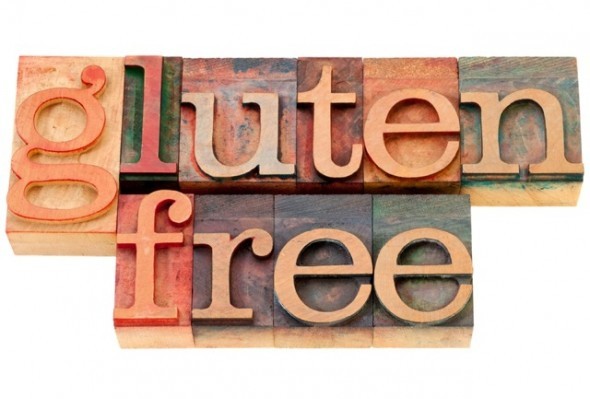
You have the blood test, and the biopsy. Several days go by, and then the doctor gives you the news: "You've tested positive for Celiac disease." The first thing that pops into your mind: "What the heck is Celiac disease?" The doctor tells you, and refers you to some reading material on the subject. He or she tells you to begin a gluten free diet immediately.
After you've had the conversation with the doctor, you wonder, "What the hell am I going to do now?" You look around at your fully stocked kitchen of gluten-y goods and you begin to feel your heart start to break. As you pack up these foods and give them away, you feel a part of you die. Those double stuf oreos that you were going to enjoy with a glass of milk, will never touch your lips again. The loaf of rye bread, oatmeal, pasta, leftover pizza, it all has to go.
After you're done getting rid of these items, you look around your empty kitchen. You gather a list of foods that are acceptable for you to eat, you get into your car, and you go to your local grocery store.
The shopping experience
The first shopping experience after diagnosis can be emotional. You have no idea what you're doing, you are carefully reading labels. You pass by all your favorite foods, that you cannot ever have again. It's tough. You might get angry. You might cry. It's okay. Having Celiac disease is hard at first. Going gluten free is a major life change. You're allowed to feel lost. Hell, I cried for a month after my diagnosis. I couldn't go into a grocery store without losing it. Also, I was stressed out because I didn't know what to look for.
As I became more knowledgeable about what was out there, it got easier. I was confident, I was reading labels like a pro, and, I don't even feel bad when I walk past my old favorites.
It's much easier to find gluten free foods nowadays. More companies are accommodating those of us who have Celiac disease, and those who are gluten intolerant. It's certainly easier than it was 10, 20, 30, even 40+ years ago. My grandmother was diagnosed with Celiac disease in the 1980s, and there was hardly ANYTHING she could eat. My grandfather had to go to a store in another state in order to purchase grains needed for baking. He would spend a lot of time grinding the grains and making special baked goods for her.
I used to moan and groan about how hard it was to be gluten free. While it still is a tad challenging, we have it easier than any generation in history. Supermarkets all over the United States have sections dedicated to gluten free foods.
My advice to those whom have just been diagnosed:
- Get to know your labels. It is very important to know what is in your food.
- Try to stay with companies that are certified gluten free, or sponsored by the Celiac Disease Association. Just because something says gluten free, it doesn't mean that it is entirely gluten free.
- Stay away from Modified Food Starch foods. These foods are NOT gluten free
- Make sure you start using gluten free soaps, lotions, styling gels, etc.
- Get involved in your local Celiac disease support group. It helps to surround yourself with people who are going through the same thing.
- As you learn more about your disease, educate your family and friends. Your family and friends are also dealing with their loved one having Celiac disease. They don't want you to feel left out of gatherings. Work through this together.
- Be careful going out to restaurants. Just because a restaurant has a gluten free menu, it doesn't mean that you won't run into cross-contamination. Call the restaurant ahead to give the kitchen a 'heads up.' Ask to speak with the manager of the restaurant. You have to be extremely careful at restaurants. I've been 'glutened' at 95% of the restaurants that have a gluten free menu. To be on the safe side, pick a restaurant that has been trained on how to handle gluten free orders. There are restaurants out there that have worked with GFCO (Gluten Free Certification Organization).
photo credit: http://myfertilitychoices.com/wp-content/uploads/2012/11/Celiac-Disease-e1352656695233.jpeg



